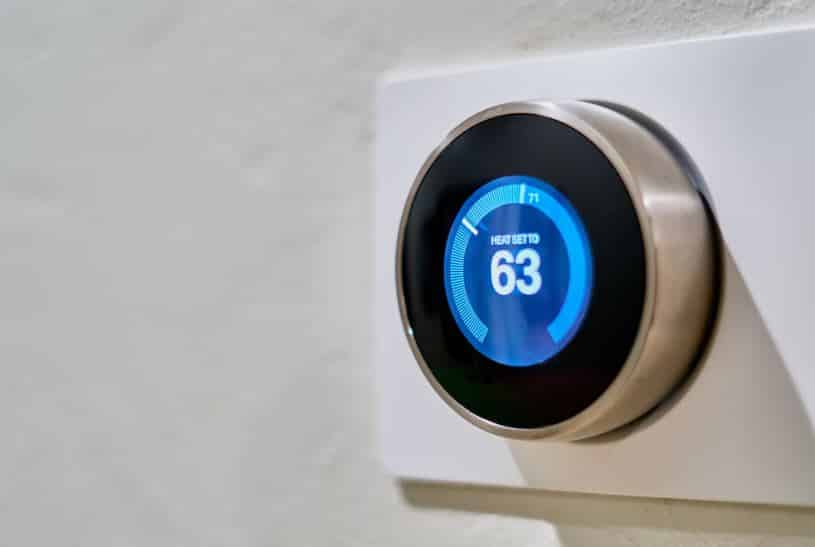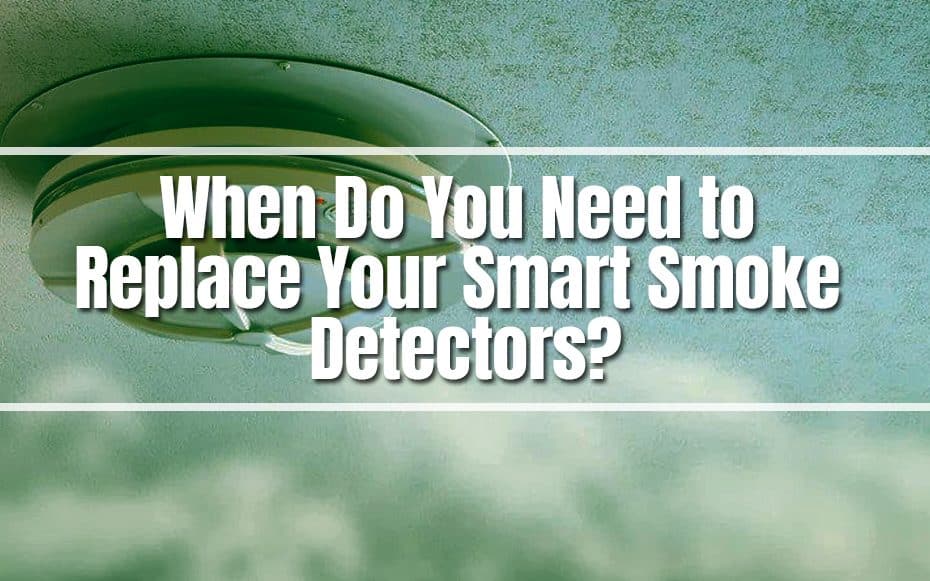A smart smoke detector is the one smart home appliance that is worth the money. Ionized or photoelectric sensors are employed in both conventional and smart smoke detectors, but that is where the similarities between them end.
Self-testing functions are incorporated into smart smoke detectors to keep an eye on battery life and sensor functionality. If there is a problem, a notification is sent to your phone. The majority of intelligent smoke detectors include carbon monoxide detection.

Your smart smoke detector can utilize the functions and sensors of your smart home to detect light or heat much more quickly if it is integrated with your home automation system.
That is just scratching the surface of what a smart smoke detector is. Let us take a deeper dive to know more about this device.
Features of Smart Smoke Detectors
Smart smoke detectors come with several useful features in addition to receiving smartphone alerts. You can resolve a significant issue by using the app to turn off the alarm. When you burn toast or something else on the stove, pressing a button on an app is far simpler than fanning the smoke detector with a towel or getting up on a chair to remove the battery.
Is It Time to Replace the Smoke Detectors in Your Home?
Smoke alarms may save your life. Therefore, you must keep them in good working order so that they can carry out their important task. That entails occasionally updating the entire machine and changing the batteries once a year. To ensure your and your family’s safety, let’s look at how frequently you should replace your home’s smoke detectors.
Safety Issues and Connectivity Concerns with Smart Smoke Detectors
You must update smart smoke alarms every six to twelve months since they require batteries, just like conventional smoke detectors. There is no chance for you to forget because the majority of smart smoke detector apps will notify you when the batteries are low.
For situations where there is no power or internet, smart smoke detectors have backup plans. Suppose your smart smoke detector is hardwired into your electrical system. In the event of a power loss, the backup battery system should take over.

Several smart smoke detector models can also communicate via Bluetooth when an alarm is triggered. They will inform you with your smartphone (if you are home) or with your smart home system in case of an internet outage. Your smart home hub or system may also be able to send notifications to you and emergency services using a regular cellular signal. That is, if it has cellular connection capabilities. While some smart home automation systems do support cellular connections, not all of them do. Furthermore, some of them could need an extra device in addition to paying a monthly charge for a cellular connection. An option that enables cellular connectivity offers a piece of mind that may be worth the extra money. That’s especially true if internet or power outages are frequent in your area.
What Is the Lifespan of Smoke Alarms?
Smoke detectors typically function properly for 10 years after the date of manufacturing. The rear of the alarm is typically printed with the date of production.
Take a look at your smoke detectors right now if you need clarification on their age. To ensure they will alert you in the case of a fire, you should replace them if they are older than ten years.
Remember to replace your detectors on the walls or ceilings if they are less than ten years old once you have checked their age.
Setting Up Smart Smoke Detectors
Suppose you are unsure of anything when installing hardwired smart smoke detectors. It is best to acquire assistance or hire someone with qualified electrical knowledge to ensure proper installation.
Whether a smart smoke detector is battery-powered or hardwired affects how it is typically installed. The simplest smart smoke detectors to install are battery-operated models because you can mount them on any wall or ceiling.
It is preferable to mount them on the wall after performing testing, pairing, and battery insertion if you are installing more than one. The gadgets will come with step-by-step instructions for testing and pairing.
When installing hardwired smart smoke detectors, you must first turn off the power to your house at the breaker box. Then, proceed with the installation of the smart detectors.
If you already have a smart home system, installing smart smoke detectors that work with it will provide you with further functionality that is not available from conventional smoke detectors. When your home is connected, you can program your system to flashlights (or change colors for colored smart light bulbs), and you can also turn off your HVAC system from your phone in case of a fire or carbon monoxide emergency. According to fire safety experts, this feature can give you and your family more time to escape safely.
When Should Your Smoke Detectors Be Replaced?
In several circumstances, it makes sense to replace your smoke detectors, even if they are less than 10 years old. Everybody should perform a monthly smoke detector test. When you press the alarm button to test it, if nothing happens, the device is broken, and you should replace it right away. Smoke alarms chirp to let you know when the batteries need to be changed. If the alarm keeps chirping even after you’ve put in fresh batteries, it’s probably faulty, so you should replace it.

Do not decide to ignore the noise or move your smoke detector from its location on the ceiling or wall if you are unable to figure out how to stop the alarm from beeping. To keep your family safe, take action right away to replace the batteries or the entire device. Smart smoke detectors include sensors that detect smoke and emit a warning signal, just like conventional smoke detectors. The primary distinction is that smart detectors deliver notifications to your phone via a suitable app.
Smoke detectors should be replaced at least once every ten years, according to fire safety experts. Smoke detectors in many homes are more than ten years old, which raises the possibility of sensor failure or malfunction. The extra safety features of smart smoke detectors over conventional smoke detectors are worth the price difference if your smoke detectors need to be replaced.
